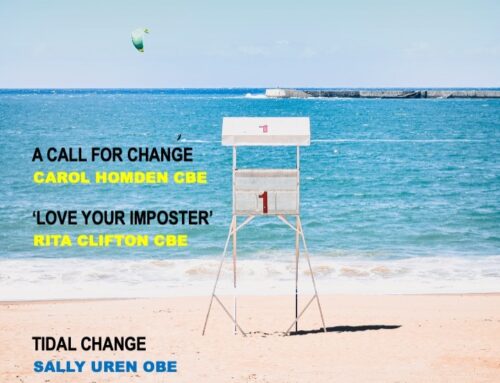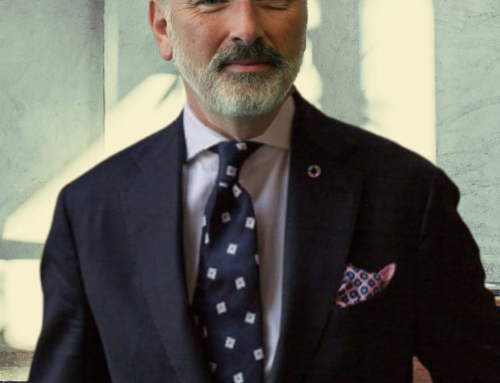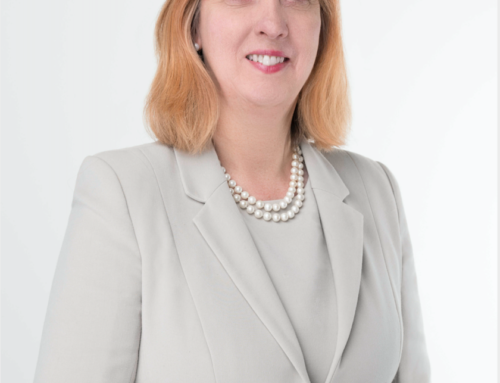Raise a Toast

We’re facing a truly pivotal moment in human history. Behind us, a period in which we degraded and took from the natural world at a rate that did not allow the Earth to replenish. Now, a stop. A reset. It’s time to reimagine and recreate our futures. We cannot go back to business as usual. But the good news is that the shift is already well underway.
 Whilst the scale of the challenge to reconstruct our most traditional industries can’t be overstated, there are many examples of innovative sustainable business models that are already succeeding. Businesses that have largely ditched the concept of shareholder primacy and are successfully balancing people, planet and profit.
Whilst the scale of the challenge to reconstruct our most traditional industries can’t be overstated, there are many examples of innovative sustainable business models that are already succeeding. Businesses that have largely ditched the concept of shareholder primacy and are successfully balancing people, planet and profit.
I set Toast Ale up with Tristram Stuart in 2015. Tristram had met the guys behind the Brussels Beer Project who’d re-created an ancient beer recipe using bread, and an idea was seeded.
Industrial quantities of day fresh bread are wasted all over the world (44% of bread goes uneaten in the UK), including the unused ends of loaves discarded by the sandwich industry because we don’t eat those crusts. Wasting this bread is a waste of the resources that go into creating it, and a source of methane emissions as it breaks down.
But instead of seeing a problem, we saw an opportunity – an abundant source of ingredients that could be used to brew beer. A brilliant circular solution to food waste. By using bread, we’d also have less need for malt, and so reduce the demand for the land, water and energy used to produce it. That land could be freed up for other purposes, including rewilding.
I first learnt about the circular economy whilst transitioning my career from financial services, working towards a masters in Environmental Decision Making. The idea that business systems could follow the same principles as the natural world, in which there is no concept of waste, only nutrients that enable other living organisms to grow, was revelatory. The concept of regenerative business models is newer, and increasingly pressing. It’s about removing unsustainable pressures on the natural world by only using resources at a level that can be replenished. But we have damaged the Earth’s natural capacity for self-renewal, so as we develop new business models, we have to consider how to help restore ecosystems.
 Creating circular, regenerative business models
Creating circular, regenerative business models
In addition to the usual business quandaries for a start-up, there are additional challenges for circular, regenerative businesses. Three stand out for me when setting up Toast.
Firstly, knowing what ‘waste’ exists, how much and where to find it is clouded by a mix of inadequate measurement and reporting, commercially sensitive information and unpredictability.
I spent many hours talking to bakeries when we were starting up, figuring out how we could cost-effectively source surplus bread. The bakers wanted to donate it, ensuring the love that went into those loaves wasn’t lost and avoiding a waste cost, but we faced uncertain volumes and logistical challenges. Eventually, working with a large sandwich factory gave us that surety of supply (and they could deliver to the brewery whilst delivering to their customers). Secondly, there are negative misconceptions about the meaning of food waste. The reality is that a huge amount of ‘waste’ is fresh, nutritious food that should have fed people. For example it includes crops rejected for failing to meet cosmetic standards rather than nutritional value (now more commonly known as wonky veg).
Many companies that use circular processes have chosen not to talk about it. We elevated the unwanted loaf and created a great-tasting product to prove our point. When I created our brand strategy, I was determined to change people’s perceptions. I wanted to tell the story of our food and to connect it to people’s lives. And I wanted to use our beer to create positive conversations that would nudge individual behaviour change. It’s heartening to listen to the many conversations (many over a beer) about the future we need to build right now, and about the appetite for change. It gives me so much hope.
Thirdly, expectations are set extra high for businesses with a loud social mission – by our own personal values and by our customers and the public. We did two things. Firstly, we dedicated all profits to Feedback, a charity with a mission to secure nutritious, delicious food for all whilst regenerating our planet. This meant we could financially support wider systemic change and extend our impact.
Secondly, I went through the process of establishing Toast as a Certified B Corp. As well as the external scrutiny of our business, it is a commitment to transparency and accountability. I write an annual impact report and talk openly to anyone who has questions.
Achieving systemic transformation: As a single business, we can have a positive impact, but to achieve real change – the transformation that we must now achieve – there has to be collaborative effort.
We need more changemakers.
We can learn so much from each other. By listening to the brilliant stories of problems faced and overcome. By sharing our journeys to inspire creative sparks in others. And by talking to each other, discussing our challenges openly so we can work out solutions together. From the outset, we decided to open-source a recipe for homebrewers and to share our knowledge and experience in commercial partnerships with businesses like Fourpure, Brew Dog and Warburtons. But our ambition has always been bigger.
Inspiring the entire brewing industry to work with food producers to eliminate surplus bread would be a game-changer. It would free up a vast amount of land, preventing further deforestation for agriculture, and reduce both fresh water use and emissions of greenhouse gases. This is the scale of disruption needed to achieve systemic transformation.
We need to go beyond our boundaries – outside of our businesses and industry sectors – and work creatively together to create a circular and regenerative economy. We have a window of opportunity to build a fairer, regenerative world.
There is no going back.
Louisa Ziane
COO, Toast Ale
http://www.toastale.com
Twitter: @toastale
Facebook: @toastale
LinkedIn: @toastale
Instagram: @toastale


Raise a Toast

We’re facing a truly pivotal moment in human history. Behind us, a period in which we degraded and took from the natural world at a rate that did not allow the Earth to replenish. Now, a stop. A reset. It’s time to reimagine and recreate our futures. We cannot go back to business as usual. But the good news is that the shift is already well underway.
 Whilst the scale of the challenge to reconstruct our most traditional industries can’t be overstated, there are many examples of innovative sustainable business models that are already succeeding. Businesses that have largely ditched the concept of shareholder primacy and are successfully balancing people, planet and profit.
Whilst the scale of the challenge to reconstruct our most traditional industries can’t be overstated, there are many examples of innovative sustainable business models that are already succeeding. Businesses that have largely ditched the concept of shareholder primacy and are successfully balancing people, planet and profit.
I set Toast Ale up with Tristram Stuart in 2015. Tristram had met the guys behind the Brussels Beer Project who’d re-created an ancient beer recipe using bread, and an idea was seeded.
Industrial quantities of day fresh bread are wasted all over the world (44% of bread goes uneaten in the UK), including the unused ends of loaves discarded by the sandwich industry because we don’t eat those crusts. Wasting this bread is a waste of the resources that go into creating it, and a source of methane emissions as it breaks down.
But instead of seeing a problem, we saw an opportunity – an abundant source of ingredients that could be used to brew beer. A brilliant circular solution to food waste. By using bread, we’d also have less need for malt, and so reduce the demand for the land, water and energy used to produce it. That land could be freed up for other purposes, including rewilding.
I first learnt about the circular economy whilst transitioning my career from financial services, working towards a masters in Environmental Decision Making. The idea that business systems could follow the same principles as the natural world, in which there is no concept of waste, only nutrients that enable other living organisms to grow, was revelatory. The concept of regenerative business models is newer, and increasingly pressing. It’s about removing unsustainable pressures on the natural world by only using resources at a level that can be replenished. But we have damaged the Earth’s natural capacity for self-renewal, so as we develop new business models, we have to consider how to help restore ecosystems.
 Creating circular, regenerative business models
Creating circular, regenerative business models
In addition to the usual business quandaries for a start-up, there are additional challenges for circular, regenerative businesses. Three stand out for me when setting up Toast.
Firstly, knowing what ‘waste’ exists, how much and where to find it is clouded by a mix of inadequate measurement and reporting, commercially sensitive information and unpredictability.
I spent many hours talking to bakeries when we were starting up, figuring out how we could cost-effectively source surplus bread. The bakers wanted to donate it, ensuring the love that went into those loaves wasn’t lost and avoiding a waste cost, but we faced uncertain volumes and logistical challenges. Eventually, working with a large sandwich factory gave us that surety of supply (and they could deliver to the brewery whilst delivering to their customers). Secondly, there are negative misconceptions about the meaning of food waste. The reality is that a huge amount of ‘waste’ is fresh, nutritious food that should have fed people. For example it includes crops rejected for failing to meet cosmetic standards rather than nutritional value (now more commonly known as wonky veg).
Many companies that use circular processes have chosen not to talk about it. We elevated the unwanted loaf and created a great-tasting product to prove our point. When I created our brand strategy, I was determined to change people’s perceptions. I wanted to tell the story of our food and to connect it to people’s lives. And I wanted to use our beer to create positive conversations that would nudge individual behaviour change. It’s heartening to listen to the many conversations (many over a beer) about the future we need to build right now, and about the appetite for change. It gives me so much hope.
Thirdly, expectations are set extra high for businesses with a loud social mission – by our own personal values and by our customers and the public. We did two things. Firstly, we dedicated all profits to Feedback, a charity with a mission to secure nutritious, delicious food for all whilst regenerating our planet. This meant we could financially support wider systemic change and extend our impact.
Secondly, I went through the process of establishing Toast as a Certified B Corp. As well as the external scrutiny of our business, it is a commitment to transparency and accountability. I write an annual impact report and talk openly to anyone who has questions.
Achieving systemic transformation: As a single business, we can have a positive impact, but to achieve real change – the transformation that we must now achieve – there has to be collaborative effort.
We need more changemakers.
We can learn so much from each other. By listening to the brilliant stories of problems faced and overcome. By sharing our journeys to inspire creative sparks in others. And by talking to each other, discussing our challenges openly so we can work out solutions together. From the outset, we decided to open-source a recipe for homebrewers and to share our knowledge and experience in commercial partnerships with businesses like Fourpure, Brew Dog and Warburtons. But our ambition has always been bigger.
Inspiring the entire brewing industry to work with food producers to eliminate surplus bread would be a game-changer. It would free up a vast amount of land, preventing further deforestation for agriculture, and reduce both fresh water use and emissions of greenhouse gases. This is the scale of disruption needed to achieve systemic transformation.
We need to go beyond our boundaries – outside of our businesses and industry sectors – and work creatively together to create a circular and regenerative economy. We have a window of opportunity to build a fairer, regenerative world.
There is no going back.
Louisa Ziane
COO, Toast Ale
http://www.toastale.com
Twitter: @toastale
Facebook: @toastale
LinkedIn: @toastale
Instagram: @toastale





